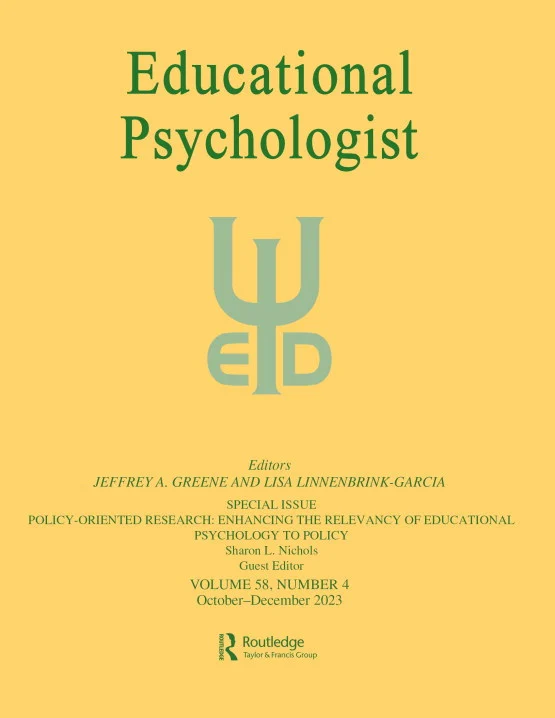特定领域的先验知识和学习:一项元分析
IF 11.4
1区 心理学
Q1 EDUCATION & EDUCATIONAL RESEARCH
引用次数: 63
摘要
摘要人们经常假设先验知识对学习表现有很强的预测作用。它可以通过一些过程积极地影响学习,也可以通过另一些过程消极地影响学习。我们在一项包含8776个效应量的元分析中检验了先验知识与学习之间的关系。个体差异的稳定性,即测前知识与测后知识的相关性较高(r P + = .534)。先验知识对学习的预测能力,即预试知识与归一化知识增益之间的相关性较低(r NG + = - 0.059),几乎为正态分布,并且具有较大的95%预测区间[-]。688年,.621]。这种强烈的可变性否定了诸如“知识就是力量”以及“先验知识的影响可以忽略不计”之类的一般陈述。它要求系统地研究在哪些条件下,先验知识对学习有积极、消极或可忽略的影响。这需要在先验知识和先验知识有用水平阈值的中介过程上进行更多的实验。本文章由计算机程序翻译,如有差异,请以英文原文为准。
Domain-specific prior knowledge and learning: A meta-analysis
Abstract It is often hypothesized that prior knowledge strongly predicts learning performance. It can affect learning positively mediated through some processes and negatively mediated through others. We examined the relation between prior knowledge and learning in a meta-analysis of 8776 effect sizes. The stability of individual differences, that is, the correlation between pretest and posttest knowledge, was high (r P + = .534). The predictive power of prior knowledge for learning, i.e., the correlation between pretest knowledge and normalized knowledge gains, was low (r NG + = −.059), almost normally distributed, and had a large 95% prediction interval [–.688, .621]. This strong variability falsifies general statements such as “knowledge is power” as well as “the effect of prior knowledge is negligible.” It calls for systematic research on the conditions under which prior knowledge has positive, negative, or negligible effects on learning. This requires more experiments on the processes mediating the effects of prior knowledge and thresholds for useful levels of prior knowledge.
求助全文
通过发布文献求助,成功后即可免费获取论文全文。
去求助
来源期刊

Educational Psychologist
Multiple-
CiteScore
19.10
自引率
3.40%
发文量
16
期刊介绍:
The Educational Psychologist is a scholarly journal dedicated to exploring the psychology of learning and instruction. Articles in this journal encompass a diverse range of perspectives, from examining psychological mechanisms to exploring social and societal phenomena related to learning and instruction. The journal publishes theoretical and conceptual articles, as well as reviews and meta-analyses, that significantly contribute to theory or advance the methods used to explore educational psychology. Emphasizing innovation and advancing understanding, the journal does not publish articles solely reporting the methods and results of empirical studies; instead, all submissions, including reviews and meta-analyses, must offer clear implications for advancing theory. In addition to regular articles, the journal features special issues that delve into important themes in educational psychology, along with focal articles accompanied by peer commentary.
 求助内容:
求助内容: 应助结果提醒方式:
应助结果提醒方式:


